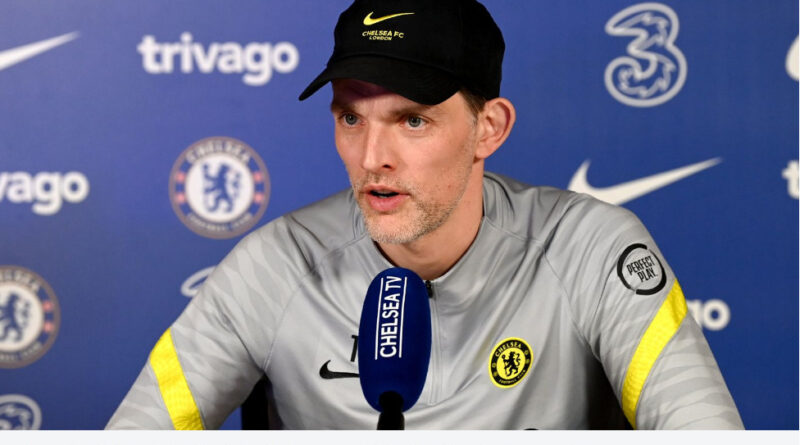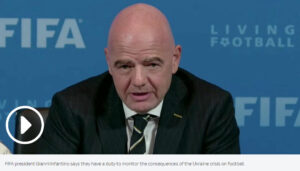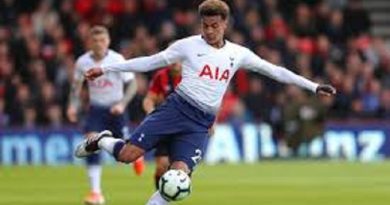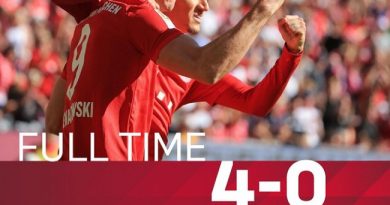I Understands Criticism of Chelsea After Russian Invasion of Ukraine -Thomas Tuchel
I Understands Criticism of Chelsea After Russian Invasion of Ukraine -Thomas Tuchel
Thomas Tuchel on criticism of Chelsea following Russia’s invasion of Ukraine: “It’s distracting us, it’s worrying us, to a certain degree I can understand it, I can understand the critical opinions towards the club and us who represent it. We cannot fully free ourselves from it”
Thomas Tuchel has said he understands criticism directed towards Chelsea in response to the ongoing Russian invasion of Ukraine.
After Russian troops crossed the border into Ukraine on Tuesday, Labour MP Chris Bryant told the House of Commons Chelsea owner and Russian-Israeli billionaire Roman Abramovich should have his assets seized, questioned whether he should be allowed to operate a football club himself, and quoted a leaked government document suggesting he should not be allowed to be based in the UK.
Ahead of Sunday’s Carabao Cup final against Liverpool, Tuchel told reporters the situation in Ukraine, and the potential consequences were “clouding” his squad’s thoughts and defended their desire to focus on football as the conflict escalated.
He said: “We shouldn’t pretend this is not an issue. The situation for everyone here is horrible. Nobody expected this, it’s pretty unreal. It’s clouding our minds and our excitement towards the final. It brings huge uncertainty, much more to all people in the moment more involved than us. We send our best wishes and regards to them, obviously.
I Understands Criticism of Chelsea After Russian Invasion of Ukraine -Thomas Tuchel
“Still there are so many uncertainties around the situation of our club, in the UK with scenarios like this, that it makes no sense if I comment on it. We’re aware of it, we haven’t got so much insight or inside information than you might think, and in the very end, I think it’s also the right from the team and staff to be not political, to focus on sports. Not because we are hiding, but the situation is clear, it’s horrible, no doubt about it.
“I’d love to take my right not to comment on it until there is a decision made. It’s distracting us, it’s worrying us, to a certain degree I can understand it, I can understand the critical opinions towards the club and us who represent it. We cannot fully free ourselves from it.
“But maybe people can understand me as the coach, and players as players, we don’t have the insight what is going on and how much the owner is involved in all this – we don’t feel responsible for what’s going on, it’s horrible and there can’t be a doubt about it, a war in Europe is unthinkable for me for a long period of time.
“Let’s wait, the impact is clear, and the discussions have an impact, but let’s be a bit more patient and understand what the measurements will be and then maybe we’ll deal with it.”
Chelsea will chase a third piece of silverware this season against Liverpool at Wembley on Sunday, following on from their UEFA Super Cup win and Club World Cup triumph last month.
While admitting such a significant distraction was not ideal for his players’ preparation, Tuchel said the thought of putting the conflict in Eastern Europe to the back of their minds was not a realistic option for the squad.
He added: “The situation is too big [to shut out]. It’s not an isolated situation, it concerns Europe, we’re a part of Europe, we cannot say let’s put it to the side. It’s the opposite, we have to live with it right now, there is no running away from it.
“We’re privileged to live in peace and freedom where we are right now, and to have a game of football in an emotional but peaceful environment with fans in the stadium. It’s a hardcore reality check of how privileged we are, I don’t think it will go away that my mind is clouded and I don’t think it will go away for anybody, because it’s too big.”
Players free to protest amid Ukraine crisis
Players, fans and football clubs will be free to protest against the Russian invasion of Ukraine, without fear of punishment from the FA, Premier League or EFL – so long as those displays are not offensive or overtly political.
As the governing body, it’s the FA who has jurisdiction in these matters, and there are clear kit and advertising regulations that prohibit the use of threatening, abusive, indecent, insulting, discriminatory, political or religious messages.
But there is a widespread feeling among officials displays of support for Ukraine should not be judged in this light.
It is not an offence to display a nation’s flag on shirts or inside a stadium – and Sky Sports News has been told many clubs in the UK are considering adopting the Ukraine flag in some capacity during this weekend’s matches, in a show of solidarity.
The FA considers issues such as this on a case-by-case basis and given its support for initiatives that promote diversity and inclusion, punishing messages of support for Ukraine’s people would seem at odds with the organisation’s overall ethos.
The FA took “a common-sense approach” back in the summer of 2020 when it became clear large numbers of professional players wanted to take a knee in a show of unity against racial inequality, following the killing of George Floyd in America.
FIFA president Gianni Infantino at the time said the players “deserved applause” for the stance they took.
Similarly, football authorities are not now expected to punish players or clubs who speak out on the situation in Eastern Europe.
Disciplinary action is expected only if an action is deemed offensive, provocative or overtly political.





